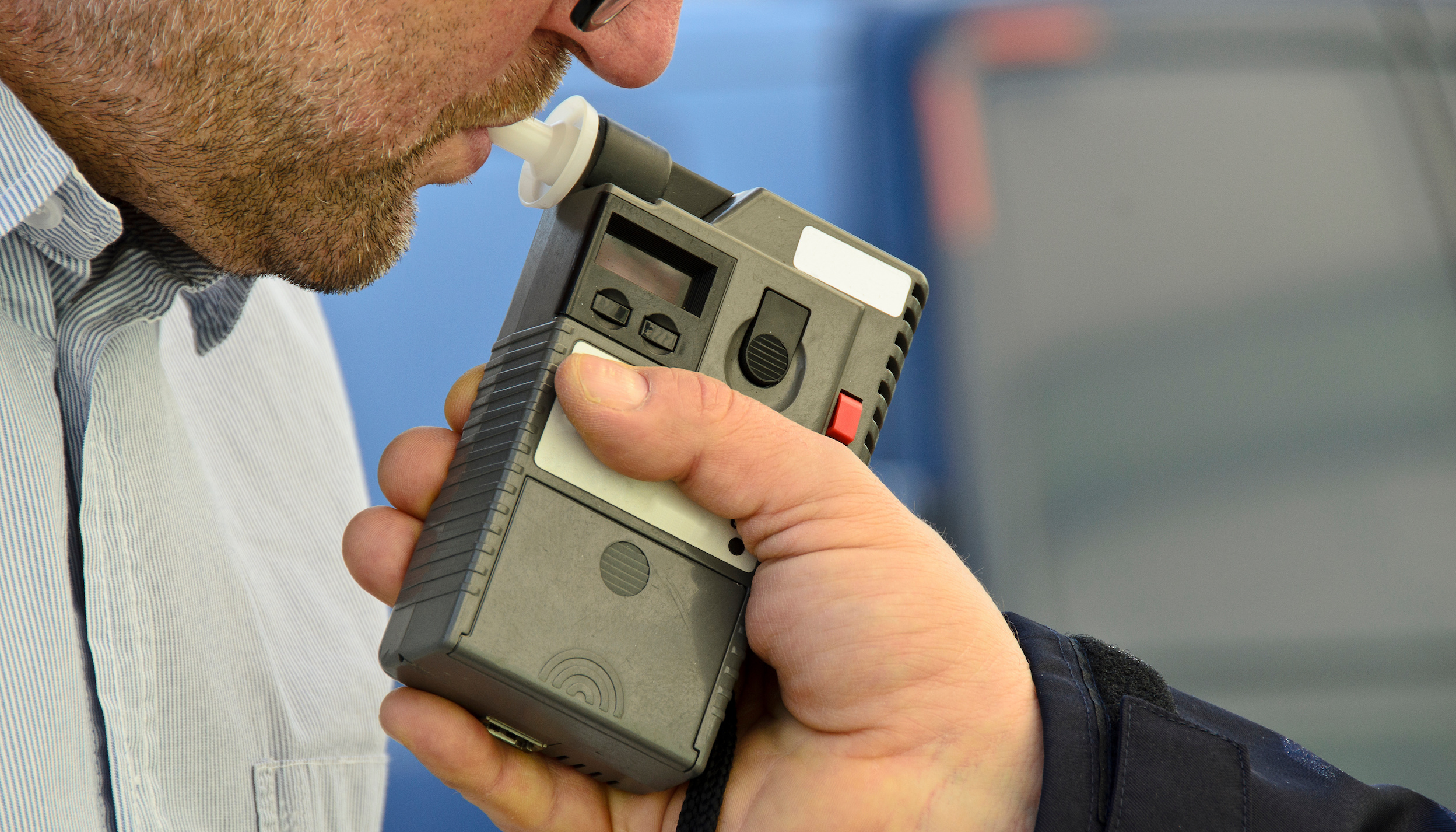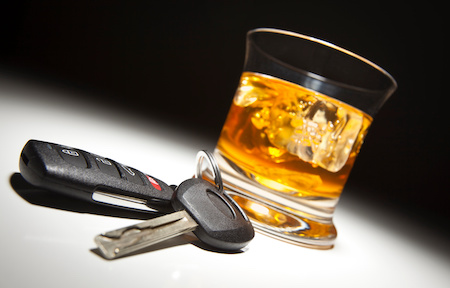If you have been arrested for a DUI involving alcohol, the police officer may have asked you to submit to a breath test. One question my clients often ask me is “Should I have submitted to a breath test?”. This article will discuss the ins and outs of breath testing in Camas, WA, as well as provide you insight on how an experienced DUI attorney can help you in your case.
What Is a Breath Test?
Breath testing machines, also known as BAC machines, were designed to measure the amount of alcohol in someone’s system. The machines work by analyzing the amount of alcohol blown from the lungs into a tube attached to the BAC device. Washington State has set a “per se” limit of .08 for driving under the influence charges. For most people, even just a couple of drinks is enough to surpass that .08 threshold limit. This means that even if you do not feel buzzed and you feel fine to drive, you could still be found guilty of a DUI in court if your BAC is above the legal limit.
What Happens If You Refuse a Roadside Breath Test?
There are typically two occasions that the officer will ask you to submit to a breath test – once on the side of the road and once again at the police station if you have been arrested for a DUI. If you refuse a breath test on the side of the road, there is no penalty for refusing to submit to the officer’s request or demand that you give a breath sample. Let’s illustrate this with a scenario.
Let’s say you have been pulled over for speeding and the officer suspects that you are under the influence of alcohol. He will likely ask you to submit to some tests to assess whether or not you are impaired. Roadside breath testing is 100% voluntary. You have no obligation to submit to this test. You are not required to help the police officer in collecting potentially incriminating evidence against you.
In many situations, officers do not have firm evidence that you are intoxicated. They are simply hoping that you will provide more evidence against yourself. I always tell clients that they are under no obligation to assist the officer in building a case against themselves. In fact, an officer is required to tell the driver that the roadside breath test is completely voluntary.
If you refuse a roadside breath test, the officer has to make a decision. He must decide whether he has enough information to arrest you for a DUI or whether he should let you go. The officer’s decision to arrest you is based strictly on the evidence available to him. If less evidence is provided to him, then that means there is less evidence that he can use to support his decision to arrest. Oftentimes, it is best to refuse the roadside breath test altogether. If the officer nevertheless arrests you for a DUI (perhaps there is other evidence – bloodshot watery eyes, slurred speech, odor of alcohol, etc), then he will likely take you to the police station for another breath test.
What Happens If You Refuse a Breath Test at the Police Station?
If you are at the police station, then the officer has likely placed you under arrest for a DUI. Should you submit to or refuse a breath test? At this point, some very important considerations come into play. Before asking you to submit to a breath test at the police station, an officer is required by law to read your Implied Consent Warnings, also known as ICWs. What are these?
Washington state law holds that every driver, as a condition of being granted a driver’s license, is implicitly deemed to have given his or her consent to submit to a breath test when asked by a police officer. This means that Camas, WA, expects you to submit to a breath test if an officer asks you. Remember, this only applies to breath tests at the station – not roadside breath tests.
If you have been arrested for a DUI, the police officer is required by law to explain to you your Implied Consent Warnings before asking you to submit to a breath test at the station. These warnings essentially explain four things:
- If you refuse a breath test, your license will be suspended and your “refusal” could be used against you at trial as consciousness of guilt.
- If you take the breath test and your BAC is above the legal limit, your license will be suspended.
- You have the right to apply for an ignition interlock device and ignition interlock license.
- You have the right to additional independent testing.
If you refuse the test, your license will be suspended and a prosecutor could use your “refusal” against you at trial to argue to the jury that you were trying to hide something. On the other hand, if you take the test and your BAC is above .08, then your license will be suspended. With these two competing consequences, it can be difficult to know whether you should submit to or refuse a breath test.
Breath Test Refusal
From a licensing perspective, the consequences of refusing a breath test are more dire than the consequences of taking a breath test, even if your BAC comes back above a .08. For example, if you have no previous DUIs and you were convicted of a DUI with a BAC above a .08, then the Washington Department of Licensing would require you to have an ignition interlock device (also known as a breathalyzer or a blow-n-go) in your car for one year. If you were convicted of a DUI “refusal”, then your license is suspended for two years. Double the penalty for refusing a breath test.
On the other hand, while a prosecutor may argue that the defendant refused the breath test to hide his or her BAC, there is often a multitude of reasons behind the “refusal” that have nothing to do with the consciousness of guilt. In my experience, DUI Refusals are generally easier to defend against at trial than those DUIs where there is a breath test result. If a jury is left wondering what the BAC would have been, this sometimes creates room to argue that the case has not been proven beyond a reasonable doubt.
Breath Test Submitted
If you do submit to a breath test at the station, then it is helpful to examine that scenario from both a licensing perspective and a trial perspective. Even if you submit to a test that is above a .08, the penalties for blowing above the legal limit are not as severe as the penalties associated with refusing the BAC test at the station. If you submit to a breath test and you are below the legal limit, the Washington DOL takes no administrative action against your license. If you blow above the legal limit and you have no prior DUIs, the DOL administratively suspends your license for 90 days (with a separate 1-year breathalyzer requirement if you are ultimately convicted of the charge). This suspension is much more lenient than the penalties for refusing a BAC test.
From a trial perspective, if you submit to a BAC test and your BAC comes back above the legal limit, it can often be more difficult to defend against the charge than if you had refused the BAC test. Keep in mind, that breath testing machines are not 100% accurate. However, in my experience, a jury more often than not tends to give considerable weight to BAC results.
What Should I Do?
It seems like BAC testing (or its refusal) can be a double-edged sword. But there are important considerations to balance from both a licensing perspective and a trial perspective. No two cases are alike, and so this article gives general considerations. If you’d like to know more or have any questions regarding your legal matter, feel free to give Carley Legal services a call.
Your Local Criminal Defense Lawyer
Carley Legal Services has extensive experience successfully defending against thousands of criminal cases over the years. The legal advice our law firm gives to our clients is hand-tailored to the unique facts of each individual case in order to create a unique defense strategy. We provide a free consultation and an aggressive defense representation to our clients. If you’re looking for an experienced criminal defense attorney to represent you in your case, call today to see how we can help you.



